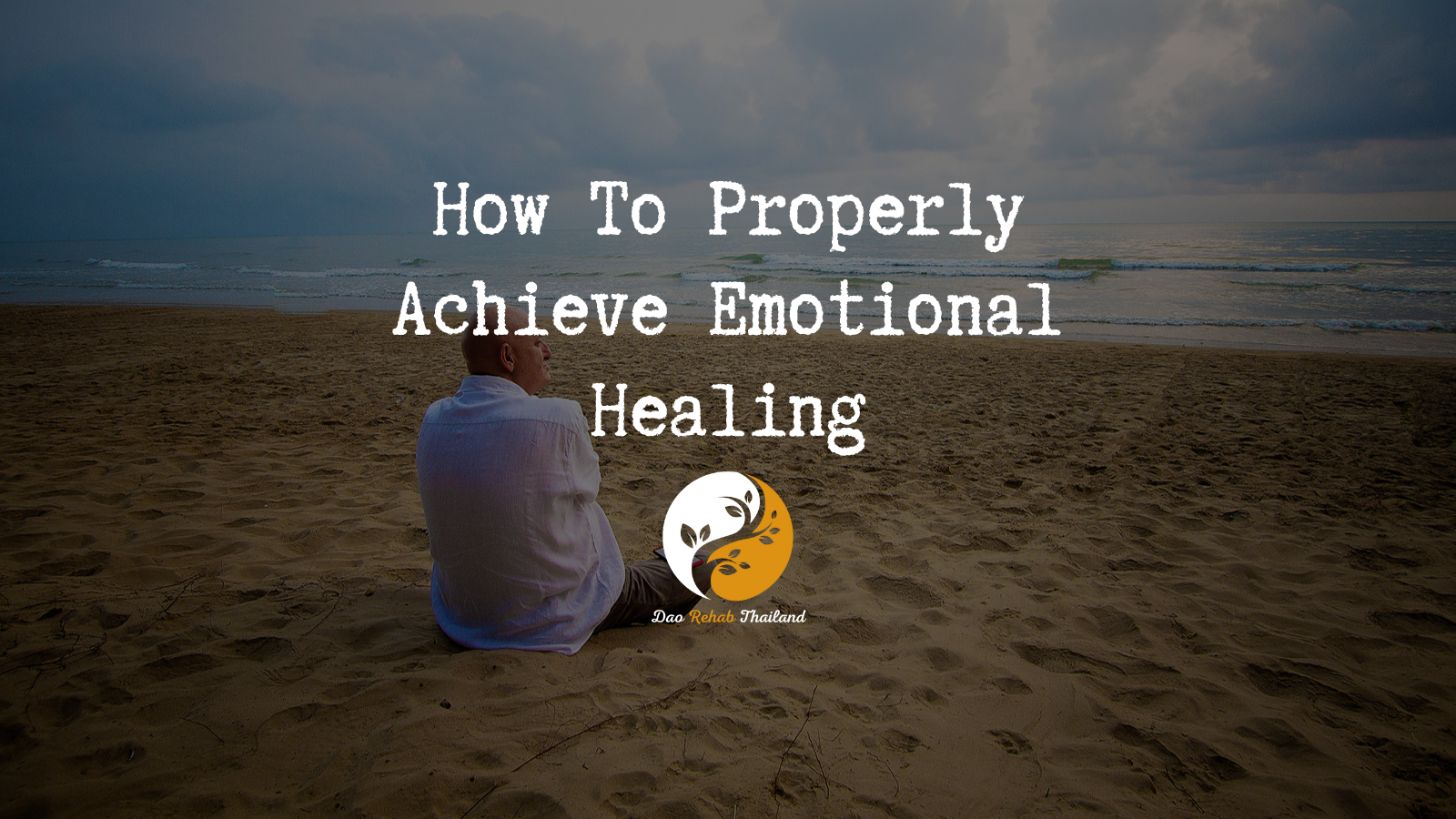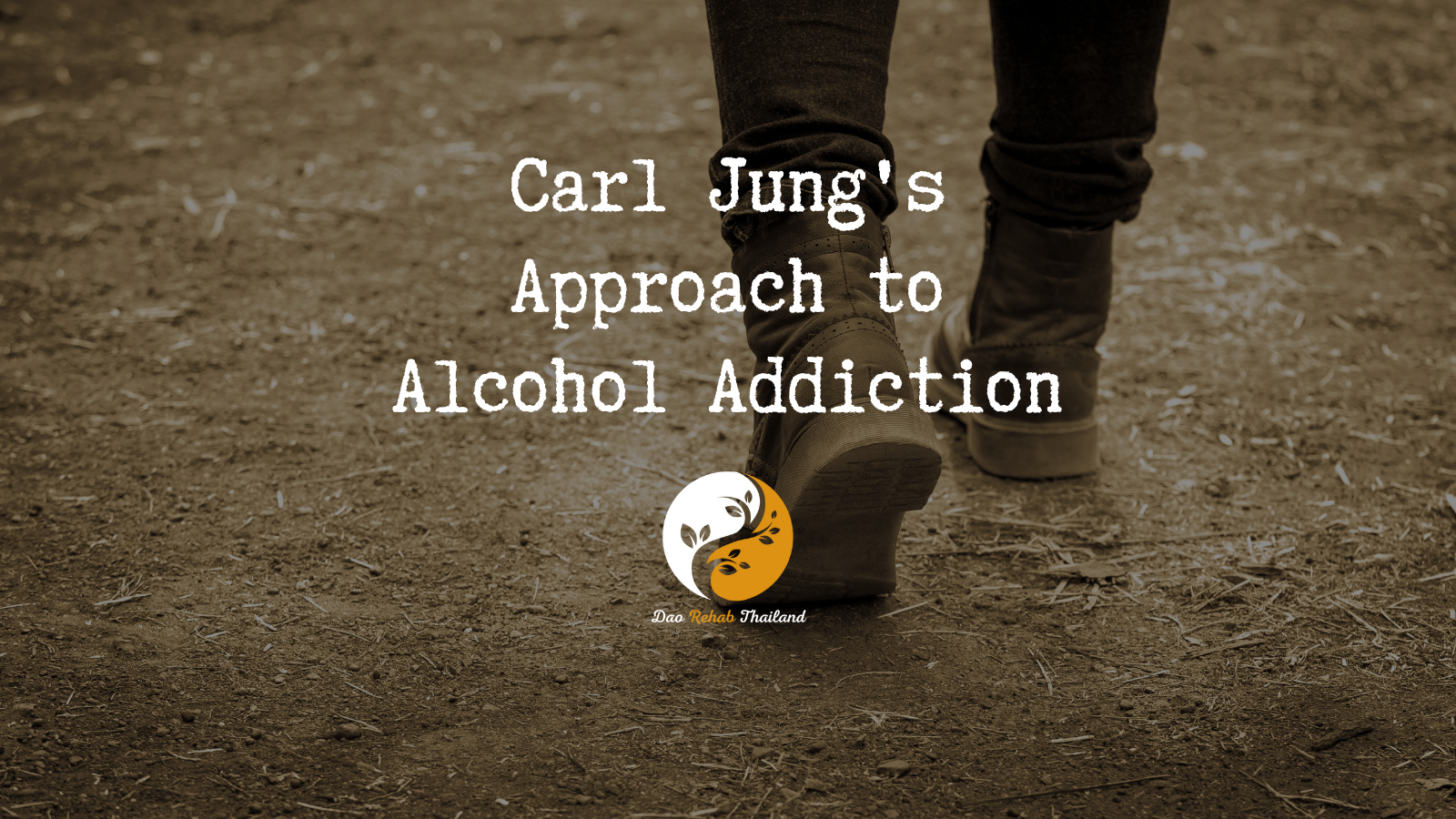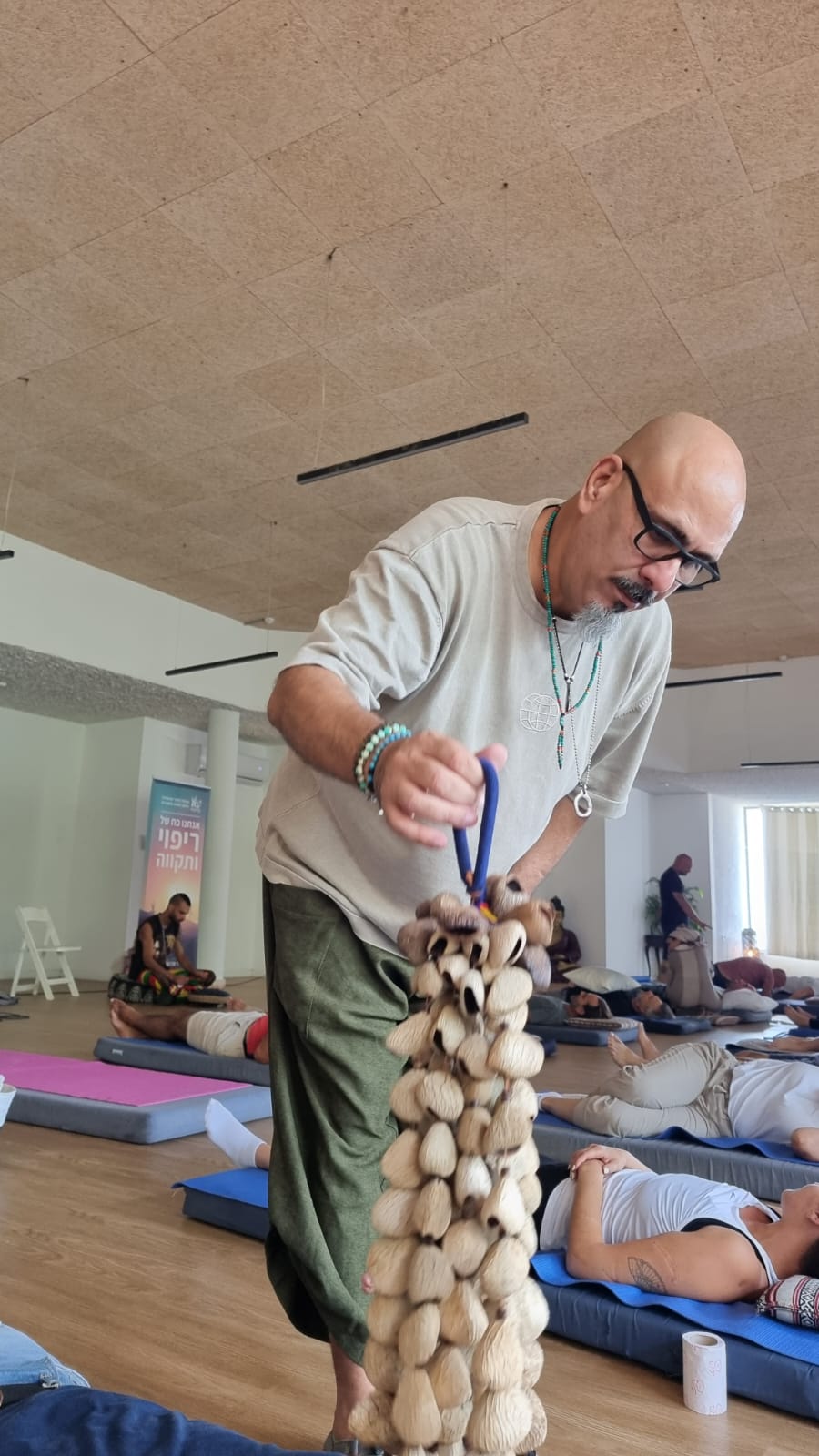
How To Properly Achieve Emotional Healing
How To Properly Achieve Emotional Healing
“Turning the impossible into possible”

"Detox from Drugs at a Luxury Holistic Center in Thailand and Israel"

How To Properly Achieve Emotional Healing
To achieve proper emotional healing, it is important to acknowledge your emotions and accept them as they are, without rejection or denial. Identify the source of your emotional pain, reflect on past experiences or situations that caused distress, and consider using writing to bring these issues to awareness. Support from close people or a professional therapist can be critical, as can joining support groups that allow sharing and learning from others. It is important to practice self-compassion and develop positive inner dialogue, alongside mindfulness or meditation to release negative emotions and create inner calm. Creative expression, such as writing, painting, or physical activity, can help release trapped emotions, while developing healthy coping mechanisms to replace harmful habits. By forgiving yourself and others and letting go of feelings of anger or guilt, you can reduce emotional burdens. It is also crucial to set clear boundaries in relationships to protect yourself and seek professional help if needed, such as emotional therapy or more advanced methods like EMDR. Practicing daily gratitude and focusing on the positive can improve overall well-being, alongside patience for the healing process, which develops gradually.
"Holistic Center for Trauma, Addiction, and Mental Imbalance Treatment in Thailand"
“Come to the beginning of your journey to freedom from addiction to alcohol, drugs, and pills, and rediscover your life within the serene embrace of DaoTherapy Rehab in Thailand—where holistic healing meets empowering recovery.”
DaoTherapy Holistic Rehab
Key Elements of Drugs Detox:
Medical Supervision: Drugs detox must be conducted under medical supervision, as the body may experience withdrawal symptoms. These can include nausea, anxiety, muscle aches, and insomnia. A medical team will monitor and manage these symptoms to ensure the patient’s safety and comfort.
Holistic Therapies:
Holistic Therapies: Many detox programs incorporate holistic therapies such as mindfulness, yoga, and meditation to help individuals cope with stress and anxiety during the detox process. These therapies support the mind-body connection and contribute to overall recovery.
Tapering Process
Tapering Process: Drugs detox often involves a gradual tapering of the drug to reduce withdrawal severity. Doctors will slowly decrease the dosage over time to allow the body to adjust to lower levels of the substance.
Psychological Support:
Psychological Support: Like any addiction recovery process, detox from Drugs includes psychological support. This can involve counseling, therapy, or support groups to address the mental and emotional aspects of addiction.
Post-Detox Treatment:
Post-Detox Treatment: After completing detox, continuing treatment is crucial to prevent relapse. This often includes participation in ongoing therapy, group support, and the development of new coping strategies to maintain sobriety.
The fear is inherent in the mind itself, which itself is hollow and devoid of content
The fear is inherent in the mind itself, which itself is hollow and devoid of content. The mind’s most basic fear is that one day man will become conscious. This awakening of awareness will symbolize the end of the world for the mind, its death. Therefore the mind is hostile towards meditation and awareness, which subverts its existence.
But for the person himself, the death of the brain actually symbolizes rebirth and true freedom. The mind is a prison, and awareness is the way out of this prison. A person who reaches a state of clear witness realizes that he has never been truly imprisoned. The fears disappear when the person realizes that nothing can be taken from him. Even if the body is killed, awareness will continue to observe it. The most valuable discovery is the discovery of awareness.
Without awareness, man is condemned to live in constant fear, both during his life and at the moment of his death, without tasting freedom. The potential for freedom is always present, but man must claim it at every moment. It is the personal responsibility of each person to realize the awareness inherent in him and to free himself from the grip of the mind’s fear. Only then can he live a life of true freedom.

contact us
Contact us with your questions
We would love to speak with you! Feel free to reach out with any questions.

get in touch
Schedule a free consultation
Schedule a free consultation with our team and let’s make things happen!
What Is Emotional Healing?
Emotional healing is the process of recovering from these wounds and patterns of coping. In general it involves acknowledging, accepting and processing painful emotions or experiences. It is a complex process that requires time and patience.
The journey to recovery varies with each person, both in time and intensity, depending on what they are recovering from. It’s a process that involves the head, the heart and the body. Understanding the healing process can help you better engage with this journey, one of discovering yourself as well as your relationships with others. This understanding may also better help you identify the kinds of support that can help in this process.
Emotional healing is the process of acknowledging, understanding, and working through emotional pain, trauma, or distress to achieve a state of inner peace and emotional balance. It involves confronting past experiences, releasing suppressed emotions, and developing healthier coping mechanisms to navigate life’s challenges. Emotional healing allows individuals to rebuild their sense of self-worth, improve their relationships, and regain a sense of empowerment over their emotions.
This process often includes practices such as self-reflection, mindfulness, therapy, or support from trusted individuals. Emotional healing is not about forgetting or erasing painful experiences but rather about integrating them into one’s life in a way that fosters growth, resilience, and emotional well-being. It is a deeply personal journey that varies for each individual, requiring patience, self-compassion, and a willingness to embrace vulnerability.
When Is Emotional Healing Needed?
The act of living means we will all confront challenging stressors in our lives that bring forth difficult emotions. And to some extent or another, we all need to experience and process these feelings. If we are unable to do so, we risk remaining stuck in an unresolved and self-limiting state, perpetuating a cycle of distress or illness with various negative emotional, physical or cognitive consequences.
There are many stressors that can lead to the need for emotional healing, including:
- Relationship breakup
- Divorce
- Death of a loved one
- Chronic illness
- Physical, emotional or sexual abuse
- Loss of employment
Steps to Emotional Healing
Emotional healing is not an easy thing. The first thing to do is ask yourself what you’re healing from and how your life would be different once you are back on track. This perspective taking is key. While there is no one way, here are steps you may take to heal emotionally. The path through these is not linear and may involve stops, starts and returns to a previous step as you process more deeply.
Awareness: Acknowledge your emotions and understand the effect they have on you. Write them down in your journal. This is your starting point.
Acceptance: Acknowledge your emotions without judgment or resistance.
Processing: Actively explore your distressing feelings. Use a variety of ways including reflection, reading, watching videos, journaling, conversations with friends, or therapy.
Releasing: Let go of the past experiences, thoughts or feelings that are hurtful. Find healthy ways to express yourself and free up your emotional energy. Use artwork or music to freely express what’s inside. Try dancing to release pent-up energy and stress. Go for walks.
Growth: This involves the painful but liberating process of creating new meaning with renewed strength as we move through our healing and learning.
Integration: Incorporating the learnings you’ve made, with a deepened feeling, you begin to apply them to new goals, friendships and relationships. Tune into the wisdom of your body and the hidden messages it holds.
Transformation: With deepened resilience and your perspectives renewed, you are able to embrace life fully again and manage new challenges with greater inner strength.
Psychological Support:
Psychological Support: Like any addiction recovery process, detox from Subutex includes psychological support. This can involve counseling, therapy, or support groups to address the mental and emotional aspects of addiction.
Emotional Healing Techniques
The National Institutes for Health proposes the following helpful techniques in its Emotional Wellness Toolkit [A]:
Build Resilience:
Develop healthy physical habits
Take time for yourself each day
Look at problems from different angles
Practice gratitude
Explore your beliefs about the meaning and purpose of life
Tap into social connections and community
Manage Stress:
Get enough sleep
Exercise regularly
Build a social support network
Set priorities
Show compassion for yourself
Set aside regular times for mindfulness meditation
Seek help if needed from a mental health professional
Get Quality Sleep:
Go to bed and wake up at the same time
Exercise daily but not right before bed
Limit the use of digital devices before bed
Keep naps early and short
Consult a health care professional if you have sleep problems
Strengthen Social Connections:
Get active and share good habits with family and friends
Build strong relationships with your kids
Take a class
Volunteer in the community
Join an interest group
Coping With Loss:
Take care of yourself
Talk with caring family and friends
Join a grief support group
Don’t make major changes right away
Talk to your doctor if you have trouble with everyday activities
Be patient. Mourning takes time
Be Mindful:
Take deep breaths. Exhale slowly. Repeat.
Enjoy a mindful stroll
Practice mindful eating
Be aware of your body
Find mindful resources
How Long Does It Take to Heal Emotionally?
The time it takes to heal emotionally varies greatly from person to person and depends on several factors, such as the nature and depth of the emotional pain, the individual’s coping mechanisms, support systems, and their commitment to the healing process.
For minor emotional wounds, healing may take weeks or months, particularly if the person actively works on processing their emotions. However, for more significant emotional trauma, such as the loss of a loved one, betrayal, or deep-seated childhood experiences, the healing process can take years. Some people may feel ongoing effects but learn to manage them in a way that allows them to live fulfilling lives.
Healing is not linear; it often involves ups and downs, with moments of progress and setbacks. While there is no definitive timeline, being patient with oneself, seeking professional support, and consistently engaging in self-care and therapeutic practices can significantly aid the process. Ultimately, emotional healing is a unique journey, and the time it takes is less important than the growth and peace it brings.
How Long Does It Take to Heal Emotionally?
The time it takes to heal emotionally varies greatly from person to person and depends on several factors, such as the nature and depth of the emotional pain, the individual’s coping mechanisms, support systems, and their commitment to the healing process.
For minor emotional wounds, healing may take weeks or months, particularly if the person actively works on processing their emotions. However, for more significant emotional trauma, such as the loss of a loved one, betrayal, or deep-seated childhood experiences, the healing process can take years. Some people may feel ongoing effects but learn to manage them in a way that allows them to live fulfilling lives.
Healing is not linear; it often involves ups and downs, with moments of progress and setbacks. While there is no definitive timeline, being patient with oneself, seeking professional support, and consistently engaging in self-care and therapeutic practices can significantly aid the process. Ultimately, emotional healing is a unique journey, and the time it takes is less important than the growth and peace it brings.
When to Seek Help
You should consider seeking help for emotional healing when:
Feelings Become Overwhelming
Emotions such as sadness, anger, or anxiety feel unmanageable or persist for an extended period.
Difficulty Functioning
Emotional distress interferes with daily activities, relationships, or responsibilities at work or home.
Physical Symptoms Arise
Stress-related symptoms such as headaches, fatigue, or digestive issues become frequent and unexplained.
Persistent Negative Patterns
Repeating unhealthy behaviors, such as substance abuse, self-isolation, or impulsivity, becomes a coping mechanism.
Trauma or Significant Life Events
Experiencing trauma, such as abuse, grief, or a major loss, leaves you feeling stuck or unable to move forward.
Feeling Hopeless or Helpless
Thoughts of hopelessness, despair, or even suicidal ideation arise and persist.
Relationship Struggles
Chronic conflicts, difficulty maintaining connections, or feelings of detachment from loved ones occur.
Unresolved Past Issues
Past experiences or memories continually resurface, causing distress or interfering with your present life.
Loss of Interest or Motivation
Activities or hobbies that once brought joy no longer feel enjoyable or meaningful.
Professional Recommendation
Friends, family, or colleagues suggest seeking help, noticing changes in your mood or behavior.
Seeking help from a therapist, counselor, or support group is not a sign of weakness but a courageous step toward emotional well-being. Professional assistance provides tools, insights, and strategies to navigate challenges and achieve meaningful healing.








